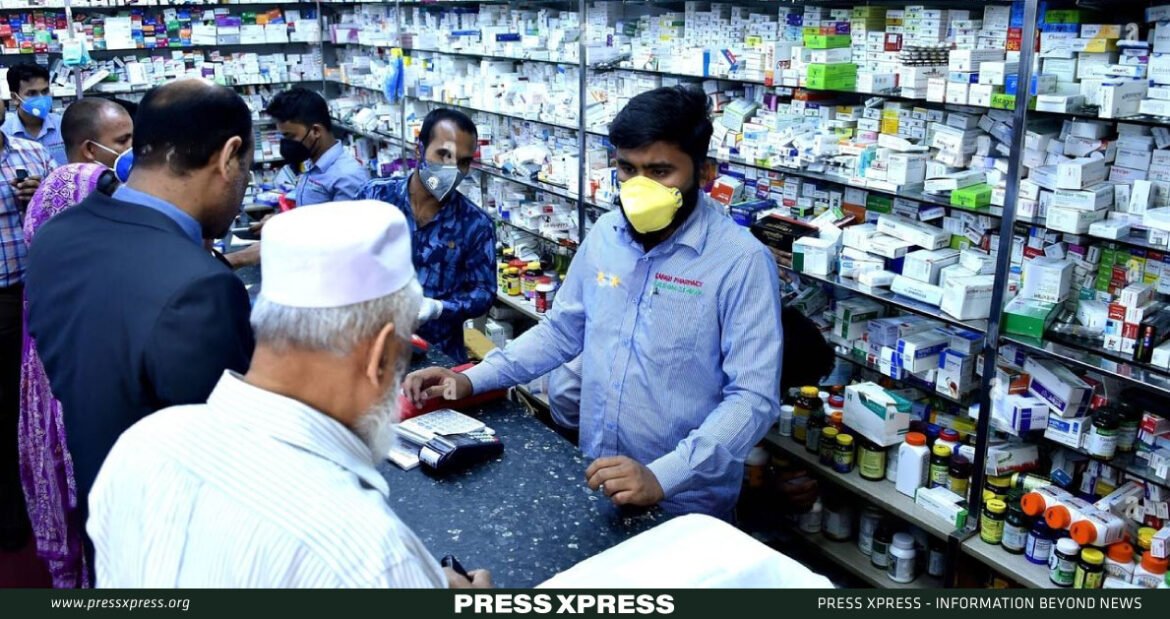Key Highlights:
- Pharmaceutical companies are currently advocating for price hikes, attributing them to a 30% rise in production expenses
- Raw material costs have surged by 10-15%, while energy and operational expenses have increased by 15-20%
In a commendable move, the High Court recently issued a directive to address the issue of uncontrolled price hikes in the pharmaceutical industry. This illicit practice has been occurring under the very noses of regulatory bodies such as the Health Service Division and the Directorate General of Drug Administration (DGDA), whose responsibility includes fixing drug prices under Section 30 of the Drug and Cosmetics Act 2023. Shockingly, this provision allows drug companies to determine the prices of over 97 percent of approximately 20,000 branded medicines produced in the country, while regulatory authorities have control over only 460 drugs under 117 generic names concerning pricing.

What Report Says?
Pharmaceutical companies are barely manufacturing even 50 percent of the generic drugs subject to price regulation by the DGDA. The High Court’s intervention followed an initial hearing of a petition submitted by the Consumer Association of Bangladesh (CAB), highlighting a newspaper report indicating a staggering increase in drug prices—ranging from 7.0 to 140 percent—in just two weeks. This surge in prices, particularly affecting essential medicines like antibiotics and insulin injections for diabetic patients, has severely impacted those reliant on these drugs.
You Can Also Read: WAGE-PRICE PUZZLE OF RMG IN PRESENT CONTEXT
This isn’t the first time concerns about the pharmaceutical industry’s practices have been raised. In February of the previous year, the CAB addressed the issue to the Parliamentary Standing Committee on Health and Family Welfare Ministry and the Bangladesh Competition Commission, underscoring that drug companies were failing to manufacture 60 out of the 117 drugs mandated by the Drugs (Control) Ordinance, 1982. Furthermore, they were freely pricing brand medicines not covered by the 117 generic names, highlighting a disheartening departure from ethical and service-oriented practices.
In response, the DGDA, instead of effectively regulating drug prices, has been upwardly adjusting the prices of 53 drugs, citing reasons such as a dollar crisis and rising costs of imported raw materials. Regrettably, pharmaceutical companies have echoed similar arguments to justify their relentless price hikes.
Why Drugmakers Want to Hike Prices?
Pharmaceutical companies in Bangladesh are seeking governmental approval to raise drug prices, citing a surge in production costs attributed to various factors. During a courtesy meeting with Prime Minister’s Private Industry and Investment Adviser Salman F Rahman on January 18, leaders of the Bangladesh Association of Pharmaceutical Industries (BAPI) conveyed that drug production costs have escalated by up to 30% over the past year. Despite these challenges, the Directorate General of Drug Administration (DGDA) has refrained from approving any increase in medicine prices.
Pharmaceutical industry leaders fear that the failure to raise drug prices could result in potential shortages in the market and a decline in the quality of drugs. SM Shafiuzzaman, the general secretary of BAPI, emphasized the necessity of increasing drug prices to offset rising costs. He highlighted challenges such as currency devaluation and difficulties in opening import letters of credit (LCs) due to the ongoing dollar crisis. In 2022, the Directorate General of Drug Administration (DGDA) raised the prices of 53 essential drug brands spanning 20 generics commonly used in primary healthcare. These price adjustments varied between 13% and 75%. Despite these changes, pharmaceutical companies argue that they are still facing financial losses.

Medicine Sales in Bangladesh Sluggish Despite Price Hikes
Despite price increases, medicine sales in Bangladesh saw their slowest growth rate in at least five years in 2023, primarily due to reduced purchases of non-life-saving drugs and vitamins.
According to a report by IQVIA, a global provider of advanced analytics, technology solutions, and clinical research services to the life sciences industry, drug sales last year increased by only 2 percent, reaching Tk 30,059 crore. This growth rate is significantly lower than the four-year average of 8.5 percent recorded in 2022.

Square Pharmaceuticals maintained its position as the largest seller, although turnover dropped 8.5 percent year-on-year to Tk 5,039 crore in 2023, according to IQVIA. It holds a 16.8 percent share of the market.
Incepta Pharma was the second-highest drug seller, with sales rising 3 percent to Tk 3,575 crore. The company owns 11.9 percent of the market share. Third-placed Beximco Pharmaceuticals’ sales increased by 1.8 percent to Tk 2,867 crore, and its market share was 9.5 percent.
Healthcare, Renata, and Opsonin had sales of Tk 2,181 crore, Tk 1,504 crore, and Tk 1,391 crore, respectively.
ACME Laboratories ranked ninth in sales, amounting to Tk 1,150 crore, leaving Radiant Pharma, with sales of Tk 1,134 crore, in the tenth position, as per the IQVIA report.
A Call to Action
The High Court’s intervention serves as a clarion call for governmental agencies to enforce discipline in the drug market rigorously. It’s imperative that authorities take proactive measures to ensure that essential medicines remain accessible to all, regardless of socioeconomic status. While the court’s order is a step in the right direction, sustained efforts are needed to address the root causes of this crisis and safeguard public health.
As the implementation of the court order looms, there’s hope for a fairer, more transparent healthcare system. However, the onus is not solely on the judiciary; governmental agencies must also play a proactive role in enforcing regulations and holding pharmaceutical companies accountable for their actions. Only through collective action can we achieve meaningful reform and ensure affordable access to essential medicines for all segments of society.


